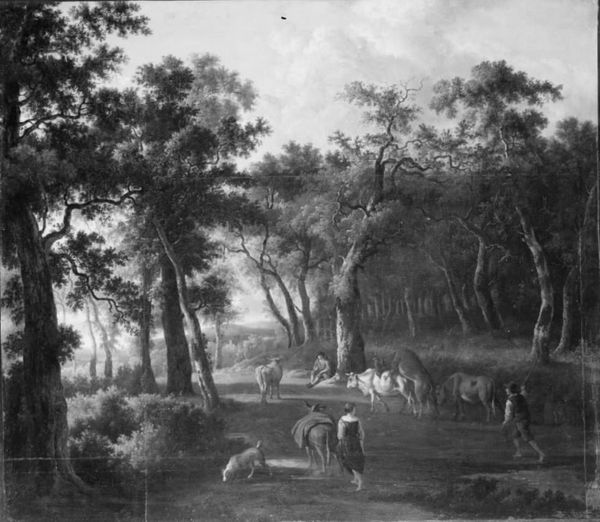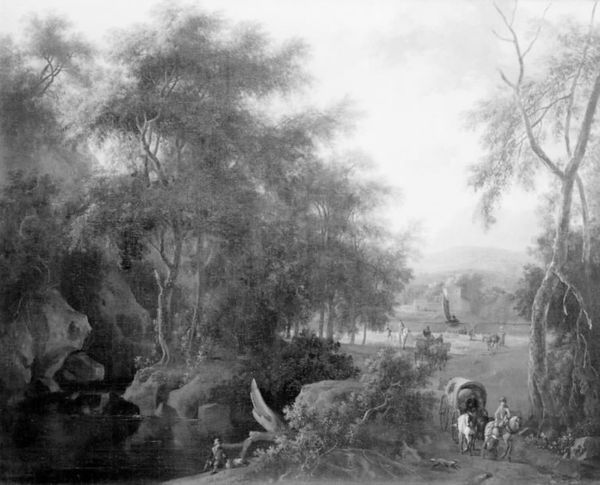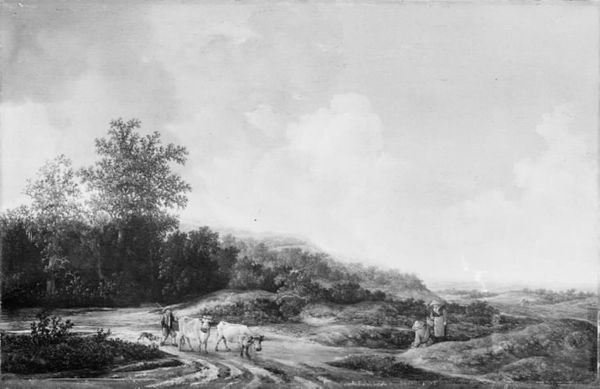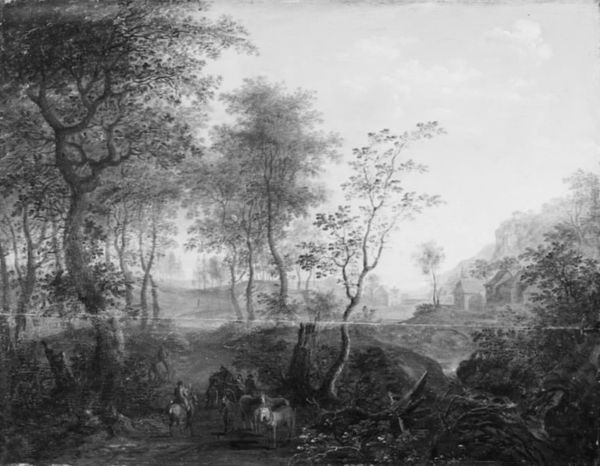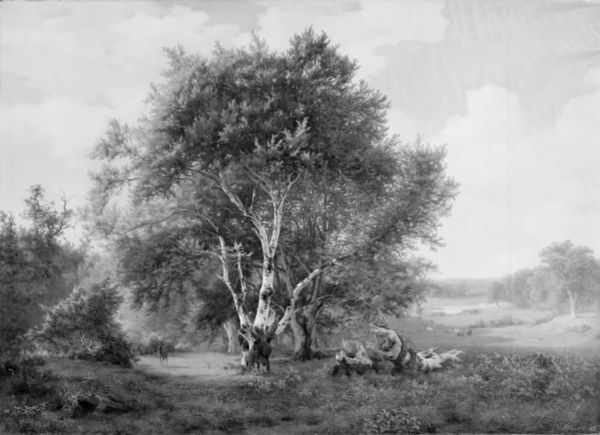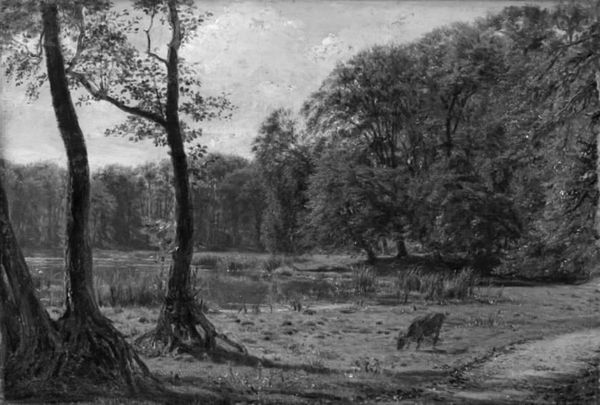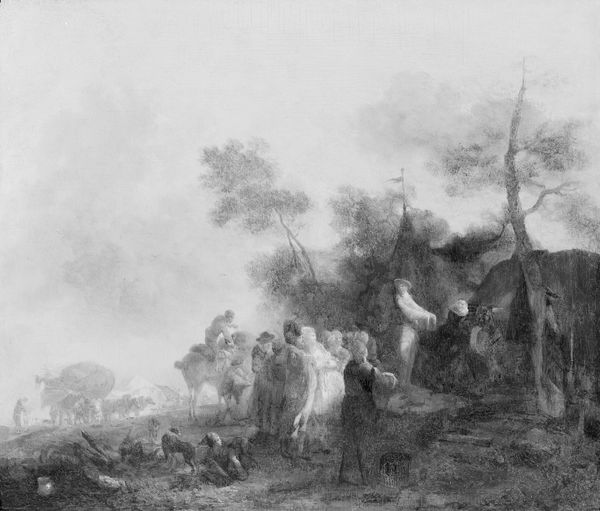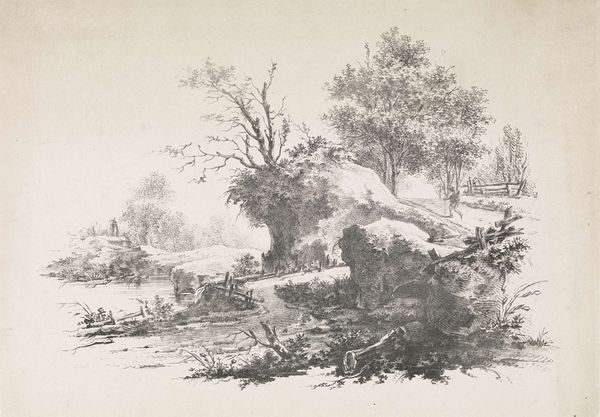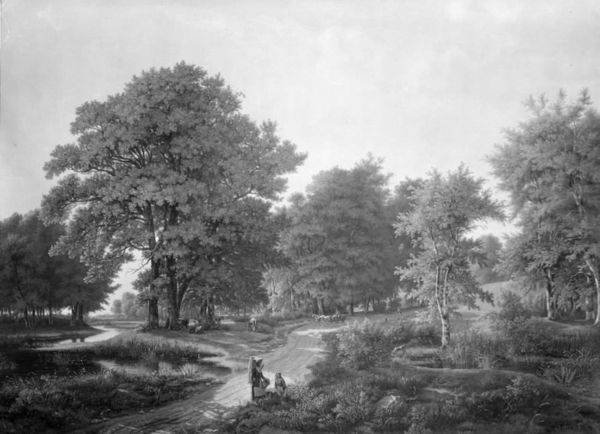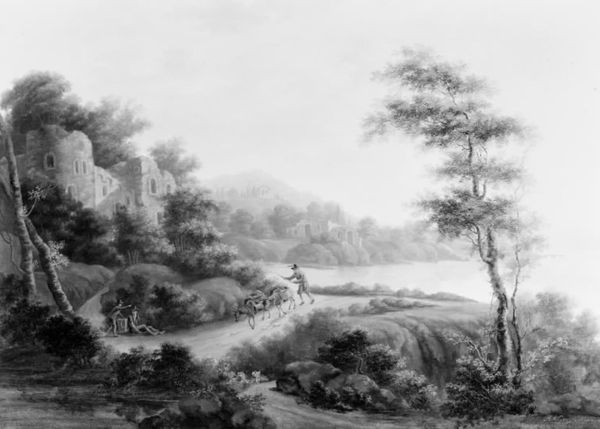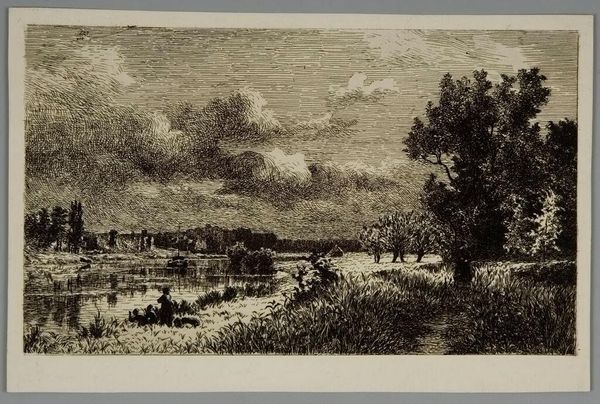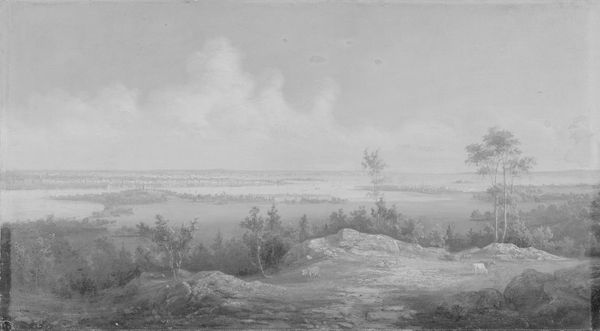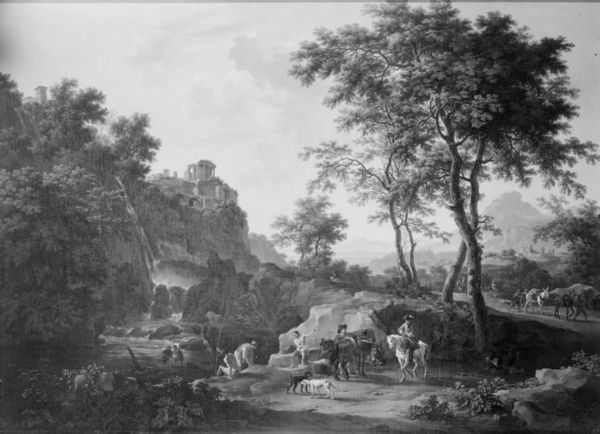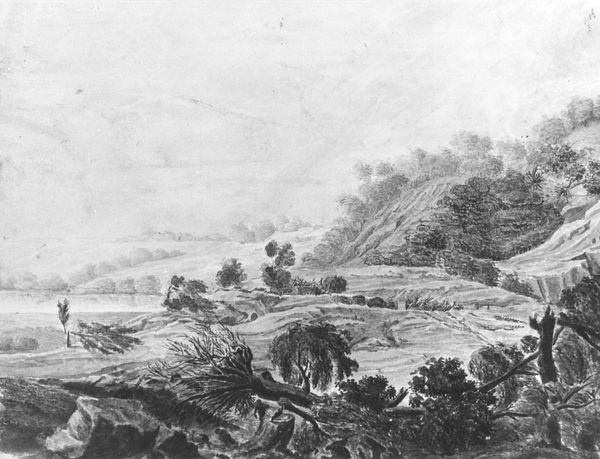
painting, oil-paint, canvas
#
baroque
#
dutch-golden-age
#
painting
#
countryside
#
oil-paint
#
landscape
#
canvas
#
black and white
#
monochrome photography
#
genre-painting
#
monochrome
#
realism
#
monochrome
Dimensions: 157.5 cm (height) x 234 cm (width) (Netto)
Curator: Here we have Johannes Lingelbach’s “May Festival in the Mountains,” created in 1656 using oil on canvas. Lingelbach was part of the Dutch Golden Age and often depicted scenes of everyday life, especially those with an Italianate flair. Editor: Immediately, I'm struck by its monochromatic, almost photographic quality. Despite being a painting from the mid-17th century, it has this strong documentary feel about it. It’s also a bit melancholy, or perhaps serene, in its lack of color. Curator: Indeed. Although our scan appears to be in black and white, I assure you the original has some tones! But your impression resonates; it does portray a kind of removed observation, a perspective typical of genre paintings, which aim to represent slices of life without overt drama. Lingelbach was deeply interested in class distinctions within a landscape too, showing a complex society as opposed to a romanticized countryside. Editor: Looking closer, I’m interested in what the people are actually doing. It's a festival, yet everyone seems strangely individual and detached. Some are clustered together, yes, but there's no real sense of communal joy. It subtly speaks to the limitations and prescribed performances within a hierarchical society, right? Curator: Precisely! Festivals, while seemingly inclusive, often reinforce social structures. Consider the placement of figures; some are clearly laborers, others are of a more affluent class. Lingelbach uses this seemingly simple genre scene to quietly critique Dutch society’s burgeoning class divisions, fueled by their trade dominance. The scene provides space for each class to perform their identities within the larger society. Editor: I see this dialogue of performances continuing. The people in the foreground and middle ground seem like they’re going about their day regardless of whatever this "May Festival" entails. It becomes a setting more than a subject—as if everyday realities overshadow prescribed celebrations. And it's all reflected so well by that monochromatic, detached feel! Curator: Well, next time you visit, maybe you can sneak up to it to confirm it's not really in monochrome. Still, I will never think about this quite the same. Lingelbach might be surprised by what our gaze reveals today! Editor: Maybe it's in monochrome for my mind alone... perspective matters. What's clear, though, is that the act of observing and questioning the supposed joy becomes itself a political act. Thanks!
Comments
No comments
Be the first to comment and join the conversation on the ultimate creative platform.
